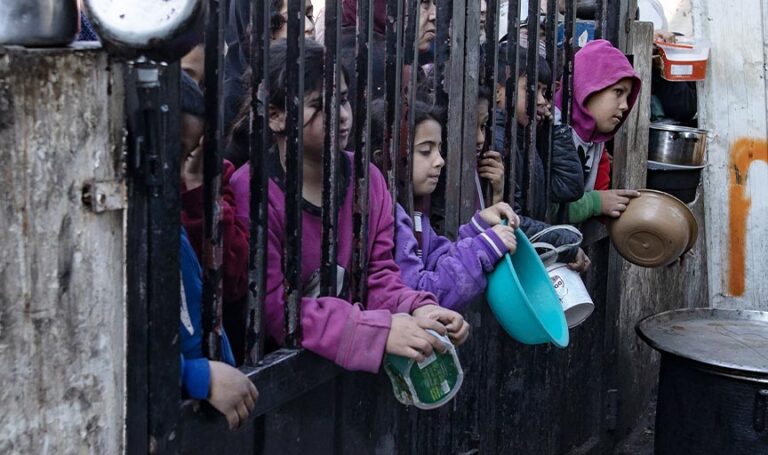Women in Gaza are using parts of tents as period products

Women in Gaza are currently facing extreme medical conditions as they try to survive through everyday life. Pregnant people are being forced to have C-sections without anaesthetic, girls are having to use strips of tent material as period products, and miscarriages have increased by 300 per cent.
Multiple news sources have revealed the stark conditions that thousands of women in Gaza are dealing with presently. Sky News has reported that more than 1.9 million Gazans have been displaced since 7 October 2023 and that a tent “city” of almost two square miles has now been set up in Rafah, south of the strip.
No food or medical supplies—including sanitary towels, tampons and contraceptive pills that could stop or delay periods—are allowed to enter this territory and while every single individual is suffering, it is predominantly women and young girls who are having to combat the more dire circumstances.
Riham Jafari, an ActionAid worker based in Bethlehem told Sky News: “They are using parts of the tents or fibres. They cut off part of it to use as pads and some of them are using their extra clothes as pads. Using unclean materials as sanitary products can cause a risk of infection and potentially deadly toxic shock syndrome.”
According to UN Women, of the 24,620 Palestinians killed since 7 October, 70 per cent of them have been women or children. Gender-specific services have been depleted to almost nothing in the area and women are in need of desperate humanitarian aid for a plethora of reasons. Pregnant people lack proper nutrition and medical care, female-led households no longer have access to women’s shelters or gender-based violence resources, and there is a complete scarcity of proper menstruation hygiene management.
Healthcare workers have reported a 300 per cent increase in the miscarriage rate among pregnant people in Gaza since Israel began bombing the area three months ago, as reported by Jezebel.
The publication also spoke with Ammal Awadallah, executive director of the Palestinian Family Planning & Protection Association (PFPPA). Awadallah explained: “All pregnant people are now at severe risk of delivering in unsafe conditions, being put in situations where they are giving birth in cars, tents, and shelters.”
At health centres, people who are pregnant are only admitted “when fully dilated and are dismissed within a few hours after giving birth, due to the overcrowded facilities and extremely limited resources,” Awadallah continued.
These conditions are not only impacting those giving birth but also the newborn babies themselves, with so many subject to infection due to unclean medical tools and a lack of proper care.
In December 2023, the World Health Organisation (WHO) reported that there were no functioning hospitals left in Northern Gaza. Just under two months later, it’s evident that the situation has escalated even further.





